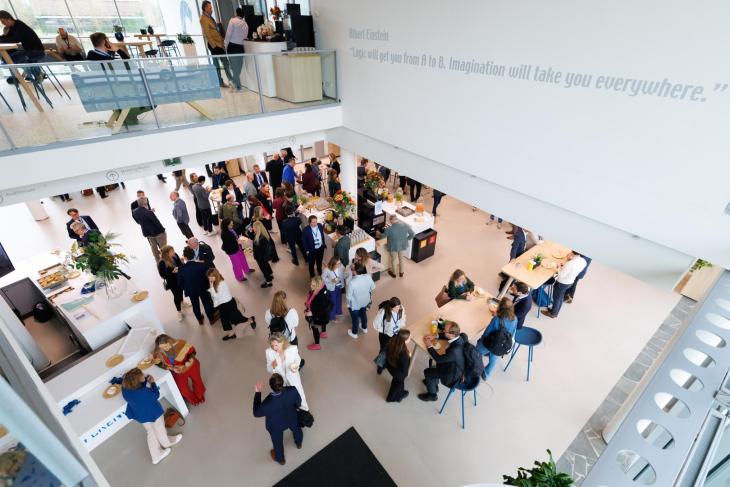The Brabant Way in Action: Insight from the Clusters meet Regions Event in Eindhoven, The Netherlands
The Clusters Meet Regions and Matchmaking event in Eindhoven on 26–27 March 2025 gathered 195 participants from 18 countries, including policymakers, business leaders, cluster managers, and researchers. Held at the High Tech Campus, the event focused on how regional ecosystems, driven by academia, business, and government, can enhance Europe's competitiveness.
As Paul van Nunen, Director of Brainport Development highlighted: "In Brabant, we view clusters not just as collaborators but as ecosystem orchestrators, connecting companies, knowledge institutions, and local authorities to build sustainable, competitive industries." The Brabant model of innovation leadership was featured, highlighting economic growth, sustainability, and industrial resilience. The programme included keynotes, panels, site visits, workshops, and a matchmaking session.
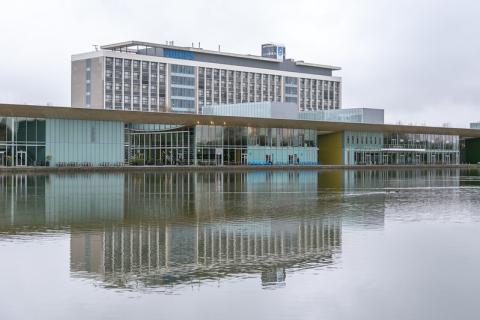
Day 1
The opening session captured Noord-Brabant’s dynamic spirit, focusing on innovation, industrial transition, and the role of SMEs and start-ups in Europe’s competitiveness. Irena Banaszynska, Representative of the Polish Presidency of the EU Council, stressed the role of clusters in shaping Europe’s future, particularly in AI, cybersecurity, and clean technologies. She also called for support for energy-intensive industries during their transition to sustainability.
Paul van Nunen from Brainport Development, Sander Groenen, Director of AgriFood Capital, and Jakub Boratynski, Director of Networks and Governance at DG GROW, European Commission, echoed these ideas, with Mr Boratynski stating: "It’s not just about innovation in one sector; it’s about driving industrial transformation across Europe through collaboration."
Dr. Jan-Philipp Kramer, Head of EU Services at Prognos and ECCP Team Member, set Noord-Brabant’s scene, discussing its strong economy, with a GDP per capita of €53,200 and €166.4 billion total exports, accounting for 20% of the total Dutch exports. He highlighted the region’s focus on mobility, agri-foods, electronics, and energy industries, as well as its robust intellectual property portfolio. Dr. Kramer noted that about a third of the Netherlands' 32 cluster organisations are in Noord-Brabant, supporting sectors like health and energy, driving innovation, internationalisation, and the digital and green transitions. He concluded by emphasising the importance of inter-regional cooperation to boost Europe’s global competitiveness.
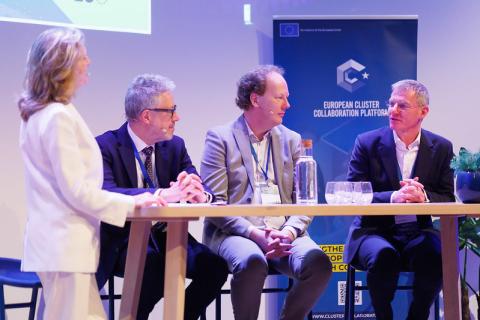
The programme continued with three keynotes on the role of clusters in regional development and innovation. Koenraad Debackere, Executive Director of KU Leuven, insisted on the importance of integrating science and business to generate "cognitive spillovers" that boost research and industrial performance. He also highlighted the need for infrastructure and venture capital to turn scientific ideas into marketable products.
He was followed by Joost van Hees, Vice President of ASML, who supported the collaboration between government, companies, and academia. He shared how ASML’s growth was supported by partnerships with Philips and European government programmes, stressing the importance of continued R&D investment to maintain global competitiveness, particularly through the European Chips Act.
Martijn van Gruijthuijsen, Regional Minister for Economic Affairs in Noord-Brabant, focused on the "triple helix" model of collaboration between government, academia, and business for regional competitiveness. He warned that Europe risks losing global influence without decisive action and highlighted the need for strategic investments in sectors like AI and semiconductors to maintain competitiveness. “Europe’s competitiveness will not be determined by a single policy or investment programme, but by our collective ability to collaborate, trust, adapt, and integrate together” he stated.
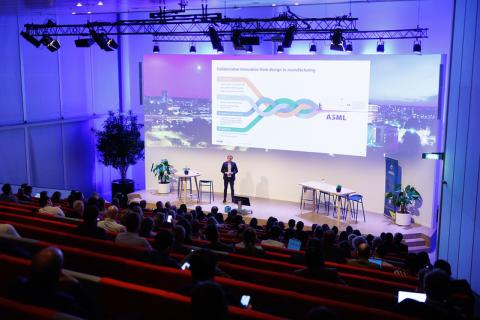
The first panel of the event focused on the importance of cross-border and inter-regional cooperation for European competitiveness and innovation. The session highlighted that collaboration is essential for tackling global challenges such as climate change, food security, and digital transformation.
Kristina Karanikolova, Innovation Policy Consultant and Researcher at TNO opened the discussion by highlighting the need for innovation corridors—cross-border partnerships that reduce costs and accelerate innovation. Sophie Bourez, Co-director of Wagralim shared how Belgian food innovation clusters have benefited from such collaboration, while Lieke van Alphen Buscardini, Coordinator at Vanguard Initiative, discussed how her network has mobilised nearly €15 million for inter-regional projects. Jitka Vocaskova, Policy Officer from the European Commission highlighted the EU’s efforts to bridge the innovation gap and strengthen regional value chains: “Collaboration across borders is no longer just nice; it’s a necessity. Challenges don’t respect borders, and to stay competitive, Europe must unite its regions and strengths.” On her side, Kristina Šermukšnytė-Alešiūnienė, Director of AgriFood Lithuania explained how her cluster connects regions to address climate challenges.
The panel concluded by emphasising the need for better coordination, simplified funding for SMEs, and long-term, trust-based partnerships. As Mrs. Karanikolova put it, "Innovation requires collaboration, but not for collaboration’s sake. We need to identify the real reason to collaborate and ensure that these partnerships are operational, sustainable, and goal-driven."
In the afternoon, the site visits highlighted Noord-Brabant’s role in fostering cross-sector collaboration, reinforcing the region’s position as a leader in Europe’s competitive and sustainable future.
Security and Defense: Noord-Brabant’s security sector thrives with high-tech solutions like Avular’s autonomous drones. The European Commission highlighted the €8 billion European Defense Fund for innovation support.
Robotics & AI and Circular Semiconductors: At Brainport Industries Campus, robotics and AI are transforming manufacturing, with a focus on sustainable practices in semiconductor production.
AgriFood Innovations at Noordkade Veghel: Noord-Brabant leads in smart farming and plant-based innovations, with collaborations with Wageningen University and the Food Waste Free United program.
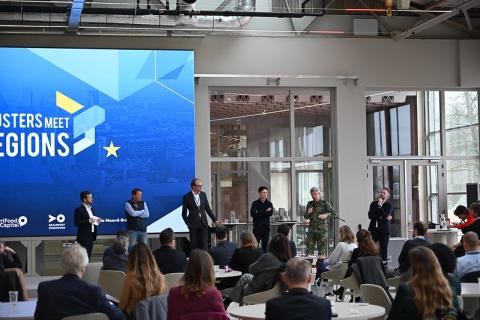
Before the official start of the Matchmaking Event, Rudy van Beurden, Professional Speaker and Pitch Trainer from GAAF | Positieve Energie, highlighted that business networking in Noord-Brabant is unique and informal, where hierarchies and titles don’t hinder meaningful conversations.
The Matchmaking Event involved 24 participants from 11 countries, with 20 bilateral meetings held. These discussions provided valuable opportunities for exploring potential collaborations. True to “Brabant’s style”, many informal meetings took place in parallel to the formal matchmaking, allowing participants to network in a relaxed environment.
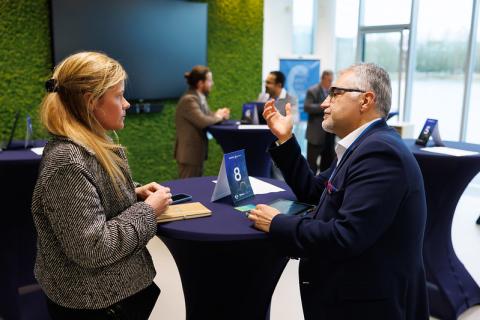
Day 2
On the second day of the event, pitching sessions were held in the lounge area, a relaxed space for casual interactions over coffee. Participants pitched on a variety of topics, including:
Bas van der Linden, Innovation Manager of Sioux Technologies (Netherlands)
Topic: Innovation in high-tech manufacturing.Chris Meadows, Director of CSconnected (United Kingdom)
Topic: Connectivity advancements for smart systems and automation.Carlos Sánchez Echeverría, Director of CAMPAG (Spain)
Topic: Integrating new technologies in agricultural and livestock production.Jade Hirvonen, Director of Agri-Food Cluster North Savo (Finland)
Topic: Innovations in sustainable food production.Venelin Dobrev, Director of Cluster Sports & Technology (The Netherlands)
Topic: Technological innovations in sports performance optimisation.
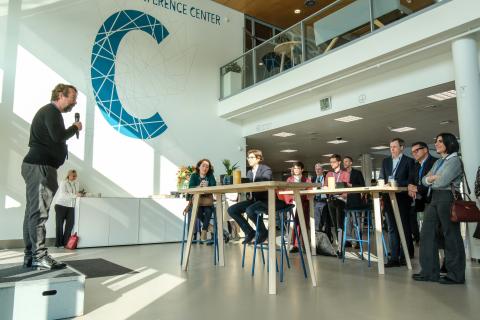
Following the pitching sessions, the event continued with a series of panels that explored key topics in driving regional competitiveness and innovation. The first panel was introduced by Teresa Czerwínska, Vice-President of the European Investment Bank. She further reinforced the importance of strategic financing. Mrs. Czerwínska also introduced the €20 billion Tech EU initiative, aimed at scaling disruptive technologies in sectors such as AI and quantum computing, with plans to allocate €180 billion in the next three years. She emphasised the need for more flexible financing for startups and quicker processes to match the pace of technological advancements: “We need to be faster and more flexible in providing financing to keep pace with the quick technological cycles in sectors like biotech and AI. Time is money when it comes to innovation.”
The first panel of the day delved into how funding can be strategically used to drive innovation and strengthen value chains. Steven Berens, Advisor from ERAC, emphasised the need for funding to support regional ecosystems and collaboration, urging a simplified approach in the next EU financial framework. Felipe Carrasco, Regional Vice-Minister for Industry, Trade, and Consumers from the Valencia Regional Government, stressed the importance of reducing bureaucracy to help SMEs access funding. The panel concluded with the insight that strategic funding, paired with collaboration, can lead to transformative results, as Berens highlighted: "It’s not just about financial transactions; it’s about leveraging funding to create long-term strategic impact."
The next panel shifted the focus to the role of clusters in driving long-term societal and economic impact. Naomie Verstraeten, Chief Innovation and Technology Officer from Brainport Development, underlined the importance of aligning clusters with societal transitions to foster sustainable growth. Søren Elmer Kristensen, CEO of Odense Robotics, highlighted the value of industry-academia partnerships in driving innovation. He said: “We are not just an ecosystem; we are part of it. Innovation happens when industry and universities work together in close partnership. That’s what makes clusters powerful.”
Maria Cristina Russo, Director Prosperity, DG for Research and Innovation, European Commission, continued with noting the essential role of collaboration at all levels in ensuring clusters thrive. The panel concluded with a shared commitment to using clusters as strategic tools for economic development and global impact.
Finally, the last panel explored the adaptability and diversity of cluster models across regions and sectors. Hugo Leyte, Innovation Accelerator from the Dutch Ministry of Defence, emphasised the importance of national-level collaboration, particularly in the defense sector. Mariella Masselink, Head of Unit Industrial Forum, Alliances, Clusters, DG for Internal Market, Industry, Entrepreneurship and SMEs, European Commission, discussed the EU's efforts to support clusters in areas like digitalisation and decarbonisation, while Ákos Szépvölgyi, Managing Director from CTRIA stressed the need for flexibility in ICT clusters.
The panel concluded with the understanding that clusters must continuously adapt to their local context, build trust-based networks, and embrace cross-border collaboration. As Ms Masselink put it: "Collaboration across sectors and borders creates the foundation for sustainable clusters."
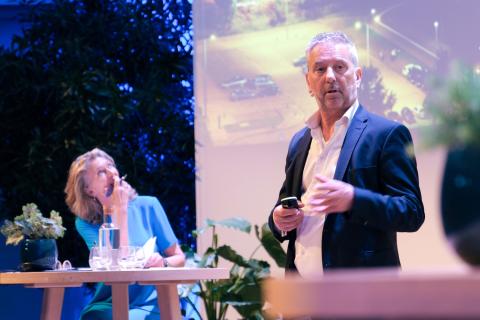
The afternoon session wrapped up the event with interactive workshops focusing on key aspects of cluster management.
Knowledge Sharing Session: Monitoring & Business Intelligence: Brainport Development’s team introduced the Photonic dashboard, a tool for measuring strengths and gaining insights to track cluster progress and secure strategic positions in international value chains.
Understanding Innovation Corridors: Mrs. Karanikolova from TNO led a workshop on interregional innovation corridors, exploring how European partnerships can amplify regional impact and encourage cross-border collaboration.
Managing and Maximising Your EU-Funded Projects: Sharon Struijcken, Partner and Senior Advisor, and Olav Veldhuizen, Senior Advisor, from ERAC, led a session on managing EU-funded projects, focusing on governance and strategies to optimise project outcomes.
The event brought together diverse voices across sectors and borders, underscoring that real innovation demands more than good ideas—it requires aligned effort, clear focus, and decisive action. Collaboration emerged as the foundation, but the message was unmistakable: without responsibility and follow-through, even the best partnerships fall short. Participants were challenged not just to connect, but to commit—to turn dialogue into direction and plans into progress. The Brabant Way served as a compelling example of how regional cooperation can drive global impact.
As Mr Sander Groenen, from AgriFood Capital put it best: “When you leave this place, please leave with a plan. What will you do tomorrow to make a difference?”
Useful links:
North Brabant: where high-tech meets defence innovation - Avular
Clusters are the hidden engines of Europe's green and digital transition - Jan-Philipp Kramer
Clusters as engines of innovation: the Leuven Model shows the way - Koenraad Debackere
Innovation corridors: Why European collaboration can’t wait - Kristina Karanikolova
Seven times focus: Brainport's approach to generating true impact - Naomie Verstraten
📸 To relive the event, check out our Flickr album, where you will find all the photos, or the aftermovie.
